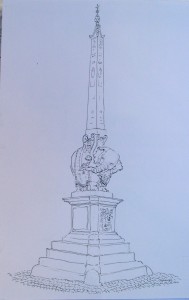
One noteworthy selection from this season’s literary line-up is Richard Ford’s Canada, and it is certainly worth your reading group’s attention. A remarkably written, patiently drawn coming of age story, Ford’s compelling first-person narrative delves into the characters’ minds in a stunning fashion. What is even more impressive is that our speaker, Dell Parsons, tells his story when he is in his sixties yet captures the sensibility of his 15-year-old self.
Richard Ford’s novels are typically very ‘male’ (consider the Frank Bascombe trilogy of which Independence Day won the PEN/Faulkner Award and the Pulitzer Prize). While Canada’s central characters are male, the prose in this graceful novel is gentle, delicate, and insightful. Consider this passage:
“I feared I’d end up knowing nothing, have nothing to rely on that could distinguish me. I’m sure it was all an inheritance from my mother’s feelings of an unrewarded life. Though it may have also been that our parents, aswirl in the thickening confusion of their own young lives–not being made for each other, probably not physically desiring each other as they briefly had, becoming gradually only satellites of each other, and coming eventually to resent one another without completely realizing it–didn’t offer my sister and me enough to hold on to, which is what parents are supposed to do. However, blaming your parents for your life’s difficulties finally leads nowhere.”
As Dell conveys his story, we can smell and feel his fear and disappointment. Although there is much happening that might destroy his psyche (look at the impact of the family events on his twin sister), Dell is able to observe, experience, and somehow survive devastating events and maintain his equanimity. Ron Charles of The Washington Post writes, “Dell is haunted by that saddest lament–“If only”–the burden of what ruined men might have been, but he fundamentally rejects despair and cynicism in favor of what he’s learned to be true.” In the end, Dell crosses from innocence to experience intact.
We highly recommend this masterwork to our smart women readers along with the men in their lives. Let us know what you think of Canada by posting your comments on this blog.
For discussion questions, click here.

